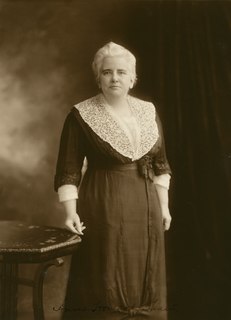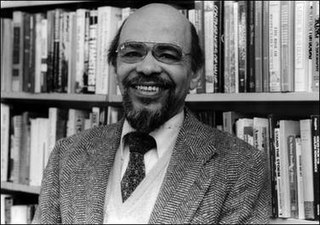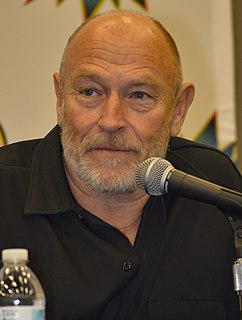A Quote by James Weldon Johnson
The battle was first waged over the right of the Negro to be classed as a human being with a soul; later, as to whether he had sufficient intellect to master even the rudiments of learning; and today it is being fought out over his social recognition.
Related Quotes
Man is, at one and the same time, a solitary being and a social being. As a solitary being, he attempts to protect his own existence and that of those who are closest to him, to satisfy his personal desires, and to develop his innate abilities. As a social being, he seeks to gain the recognition and affection of his fellow human beings, to share in their pleasures, to comfort them in their sorrows, and to improve their conditions of life.
Critical acumen is exerted in vain to uncover the past; the past cannot be presented; we cannot know what we are not. But one veilhangs over past, present, and future, and it is the province of the historian to find out, not what was, but what is. Where a battle has been fought, you will find nothing but the bones of men and beasts; where a battle is being fought, there are hearts beating.
Some would define a servant like this: 'A servant is one who finds out what his master wants him to do, and then he does it.' The human concept of a servant is that a servant goes to the master and says, 'Master, what do you want me to do?' The master tells him, and the servant goes off BY HIMSELF and does it. That is not the biblical concept of a servant of God. Being a servant of God is different from being a servant of a human master. A servant of a human master works FOR his master. God, however, works THROUGH His servants.
His master’s pain was his pain. And it hurt him more for his master to be sick than for him to be sick himself. When the house started burning down, that type of Negro would fight harder to put the master’s house out than the master himself would. But then you had another Negro out in the field. The house Negro was in the minority. The masses—the field Negroes were the masses. They were in the majority. When the master got sick, they prayed that he’d die. If his house caught on fire, they'd pray for a wind to come along and fan the breeze.
In the event of a violent revolution, we would be sorely outnumbered. And when it was all over, the Negro would face the same unchanged conditions, the same squalor and deprivation-the only difference being that his bitterness would be even more intense, his disenchantment even more abject. Thus, in purely practical as well as moral terms, the American Negro has no rational alternative to nonviolence.
It's core to my beliefs now: Sometimes in being given a challenge, you're actually being given a real opportunity, and a lot of that is how you handle it. Do you feel sorry for yourself or do you think, All right! I'll see what I can make out of this? I've had that over and over. If I hang out in the disappointment, I'll just be disappointed all the time.
In the forests of central India and in many, many rural areas, a huge battle is being waged. Millions of people are being driven off their lands by mining companies, by dams, by infrastructure companies, and a huge battle is being waged. These are not people who have been co-opted into consumer culture, into the western notions of civilisation and progress. They are fighting for their lands and their livelihoods, refusing to be looted so that someone somewhere far away may "progress" at their cost.
Day and night she had drudged and struggled and thrown her soul into her work, and there was not much of her left over for anything else. Being human, she suffered from this lack and did what she could to make up for it. If she passed the evening bent over a table in the library and later declared that she had spent that time playing cards, it was as though she had managed to do both those things. Through the lies, she lived vicariously. The lies doubled the little of her existence that was left over from work and augmented the little rag end of her personal life.
'L.A. Law' has been a bit of a blessing and a curse. First of all, it was a very prestigious show that had a lot of intellect, and I was the pretty boy. I've had to battle that my whole career: 'Oh, you were the face guy. You didn't really have to act; you just had to wear the right suits.' I had to battle that.
The real master is only a presence. He has no intentions of being a master. His presence is his teaching. His love is his message. Every gesture of his hand is pointing to the moon. And this whole thing is not being done, it is a happening. The master is not a doer. He has learned the greatest secret of life: let-go. The master has drowned his ego and the idea of separation from existence itself.






































